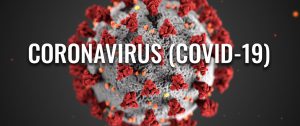Novel coronavirus (COVID-19) is known to cause acute respiratory distress syndrome (ARDS), which causes about 50 percent of ARDS deaths despite intensive care and mechanical ventilation. Therefore, patients with coronavirus infection who develop ARDS are at a particularly high risk. Professor Javitt said: “After carefully reviewing the preclinical and clinical data submitted to FDA for IND and orphan drug certification for Aviptadil, we believe that Aviptadil may be a safe and effective ARDS treatment in general, especially for ARDS caused by COVID-19. Due to the rapid expansion of the epidemic and unusual unmet medical needs, we are prepared to start clinical trials as soon as possible so that potentially life-saving treatments can be brought to market as soon as possible. ”
Acute respiratory distress syndrome (ARDS) is a type of respiratory failure characterized by rapid development of diffuse inflammation in the lungs. Symptoms include shortness of breath, shortness of breath and skin cyanosis. A decline in the quality of life is relatively common among survivors. Causes may include viral infection, sepsis, pancreatitis, trauma, pneumonia and inhalation. The underlying mechanism involves diffuse cellular injury, the formation of microscopic balloon barriers in the lungs, dysfunction of surfactant, activation of the immune system and dysfunction in the regulation of blood coagulation. In fact, ARDS can impair the lung’s ability to exchange oxygen and carbon dioxide. The primary treatment includes mechanical ventilation, combined with treatment for the underlying etiology. Ventilation strategies include low flow and low pressure. If oxygenation is still insufficient, alveolar stretching and neuromuscular blockers can be used. The mortality rate of the syndrome ranges from 35% to 50%. Worldwide, ARDS affects more than 3 million people every year.
Aviptadil is a patented dosage form of vasoactive intestinal polypeptide (VIP). VIP was originally developed as a combination of phentolamine and is now sold in Europe for the treatment of erectile dysfunction. It is known that VIP is highly concentrated in the lung and can inhibit a variety of inflammatory cytokines. In 2001, Aviptadil was certified by American FDA Orphan Drug for the treatment of acute respiratory distress syndrome, and in 2005, it was certified for the treatment of pulmonary hypertension. Aviptadil was certified as an orphan drug by the European Drug Administration in 2006 for the treatment of acute lung injury and in 2007 for the treatment of sarcoidosis. Both FDA and EMEA in the United States have issued licenses for new drugs under development in Aviptadil Phase 2 human trials. The University of Freiburg in Germany is currently conducting a clinical study to evaluate the effectiveness of Aviptadil in patients with pulmonary sarcoidosis.
A large number of animal studies have shown that Aviptadil may reduce pulmonary inflammation in a variety of models and edema. Human phase 1b/2 studies (involving a total of 76 patients) have shown that Aviptadil has the potential to relieve bronchospasm, reduce pulmonary hypertension and treat other features of pulmonary inflammation in some cases, including a significant reduction of alpha pro-inflammatory cytokine tumor necrosis factor (TNF–α). Among them, a phase 2 preliminary trial of Aviptadil in 8 ARDS patients showed excellent safety and encouraging signals of potential efficacy.
References
- Jahangir, M. A., Muheem, A., & Rizvi, M. F. Coronavirus (COVID-19): History, Current Knowledge and Pipeline Medications. Int J Pharm Pharmacol 2020; 4: 140. doi: 10.31531/2581, 3080(2).
- Keshavarz, A., Kadry, H., Alobaida, A., & Ahsan, F. (2020). Newer approaches and novel drugs for inhalational therapy for pulmonary arterial hypertension. Expert Opinion on Drug Delivery, 1-23.
- Sommer, N., Ghofrani, A., Pak, O., Bonnet, S., Provencher, S., Sitbon, O., … & Kiely, D. G. (2020). Current and future treatments of pulmonary arterial hypertension. British Journal of Pharmacology.

